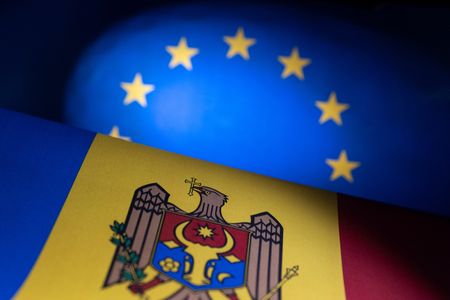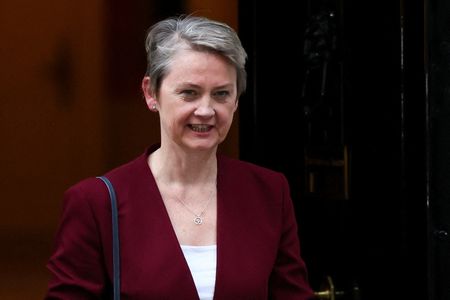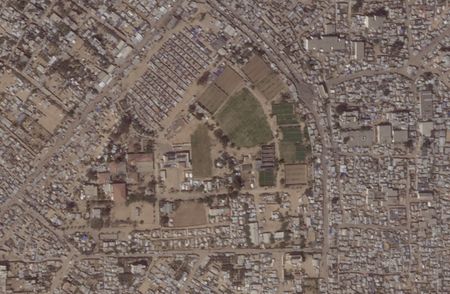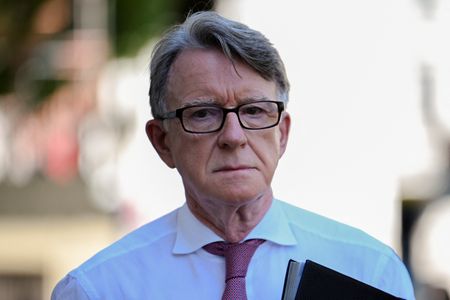CHISINAU (Reuters) -Moldova could see its ambitions to join the European Union halted if it fails to return a pro-European parliament, senior Moldovan officials said on Thursday, as an opinion poll put the pro-Russian opposition in the lead in a general election campaign.
The president of parliament and the prime minister, senior members of President Maia Sandu’s PAS party, said her drive to join the EU lay in the hands of voters in Moldova, one of Europe’s poorest states lying between Ukraine and Romania.
Sandu is a vocal critic of Russia’s invasion of Ukraine, which has buffeted Moldova, with Russian drones landing repeatedly on its territory. Brought to power on a promise to eliminate corruption, she was reelected last year and voters narrowly approved her drive for EU membership in a referendum.
“There should be no illusions. The EU will not finance a government oriented on the Kremlin,” Parliament President Igor Grosu told a press conference.
“Integration with the EU would be halted, the chance to join in 2028 would be lost and criminal clans would make a comeback.”
Prime Minister Dorin Recean said only voters could “save Moldova from those who plundered it and sold it out”.
The PAS, which held 61 of 101 seats in the outgoing parliament, slipped into second place for the first time in an poll published this week, with 34.7% backing, behind 36% for the pro-Russian Patriotic Bloc, including Socialists and Communists.
The Patriotic Bloc’s main leader, Socialist former President Igor Dodon, says pro-European policies have hurt ordinary Moldovans.
Political analyst Vitalie Andrievschii said the Patriotic Bloc had benefited from “quite an active and aggressive campaign to persuade voters of the need for change. The same cannot yet be said of the PAS.”
The poll showed two other parties likely to win seats – Our Party, led by an ex-mayor of Moldova’s second-largest city, Balti, with 8.4%, and the Alternative Bloc, accused by the government of concealing a pro-Kremlin bias, at 7.9%.
The poll took no account of 1 million voters living abroad who tend to heavily back Sandu. Analysts have suggested that if the PAS falls short of a majority, Sandu would form a coalition with Our Party rather than appoint a pro-Russian prime minister.
(Reporting by Alexander Tanas; Writing by Ron Popeski; Editing by Jamie Freed)











